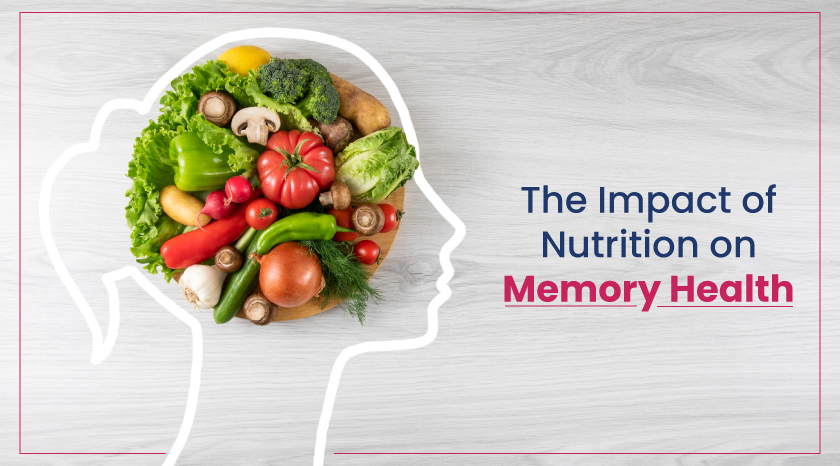In the pursuit of a vibrant and fulfilling life, cognitive health stands as a cornerstone. Memory, in particular, plays a vital role in our daily functioning, influencing everything from learning new information to recalling cherished moments. As we explore avenues to support cognitive well-being, the role of nutrition in memory health emerges as a compelling and proactive approach. In this blog, we’ll delve into the fascinating connection between nutrition and memory, uncovering the power of mindful eating for a sharp and resilient mind.
Understanding the Fusion:
- Omega-3 Fatty Acids: Found abundantly in fatty fish, flaxseeds, and walnuts, omega-3 fatty acids are renowned for their brain-boosting benefits. These essential fats contribute to the structural integrity of brain cells and play a crucial role in synaptic function – the communication between brain cells. Regular consumption of omega-3-rich foods has been linked to improved memory and cognitive performance.
- Antioxidant-Rich Foods: The brain is susceptible to oxidative stress, which can contribute to cognitive decline and memory impairment. Antioxidant-rich foods, such as berries, dark chocolate, and leafy greens, act as defenders against oxidative damage. Including a variety of colorful fruits and vegetables in your diet provides a spectrum of antioxidants that support overall brain health.
- Brain-Boosting Vitamins: Certain vitamins are particularly beneficial for memory health. Vitamin E, found in nuts and seeds, has antioxidant properties that protect brain cells. B-vitamins, including B6, B9 (folate), and B12, play a role in neurotransmitter synthesis and are essential for cognitive function. Leafy greens, legumes, and lean meats are excellent sources of these vitamins.
- Turmeric and Curcumin: The golden spice, turmeric, contains a compound called curcumin with potent anti-inflammatory and antioxidant properties. Research suggests that curcumin may cross the blood-brain barrier and has the potential to benefit memory and cognitive function. Including turmeric in your diet or taking supplements can be a flavorful strategy for brain health.
- Moderating Sugar and Refined Carbohydrates: High levels of sugar and refined carbohydrates have been associated with cognitive decline. Diets high in these elements may contribute to insulin resistance, inflammation, and oxidative stress – factors that can negatively impact memory. Opting for whole grains, fruits, and minimizing added sugars supports both brain and overall health.
- Hydration Matters: Dehydration can impair cognitive function and concentration. Staying adequately hydrated ensures optimal blood flow to the brain, supporting its overall function. Make water your beverage of choice and consider incorporating hydrating foods like watermelon and cucumber into your diet.
- Mindful Eating Practices: In addition to specific nutrients, the manner in which we eat can influence memory health. Mindful eating, characterized by being present and attentive during meals, may lead to better digestion and absorption of nutrients. Avoiding distractions and savoring the flavors of your food can enhance the overall dining experience.
As we savor the rich tapestry of flavors that make up our diets, let’s not overlook the profound impact that nutrition can have on memory health. From omega-3 fatty acids to antioxidant-rich foods and brain-boosting vitamins, the choices we make in the kitchen extend far beyond satisfying our taste buds.
By embracing a nourishing approach to eating, we empower ourselves to support cognitive vitality and memory resilience. As we navigate the intricate dance between nutrition and memory, may each mindful bite pave the way for a life enriched with cognitive well-being and the joy of remembering the moments that matter most.




